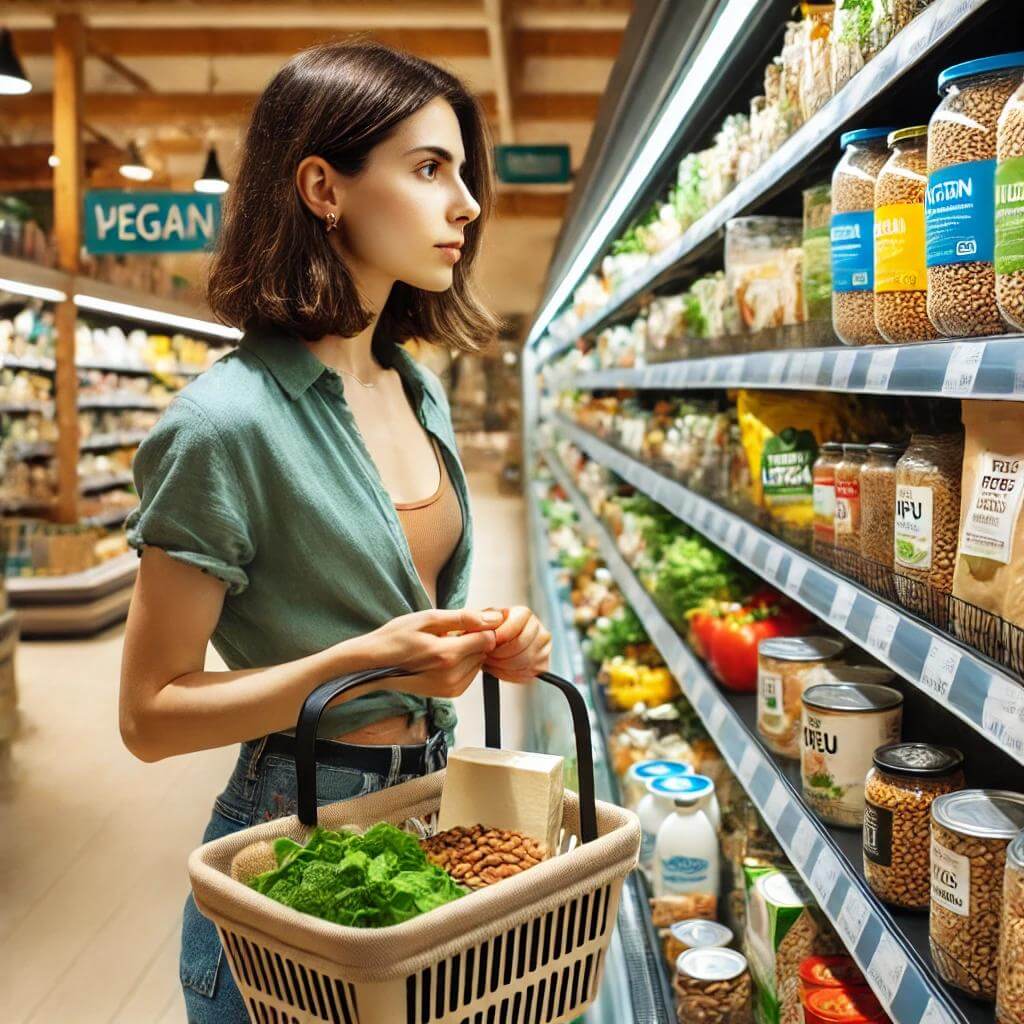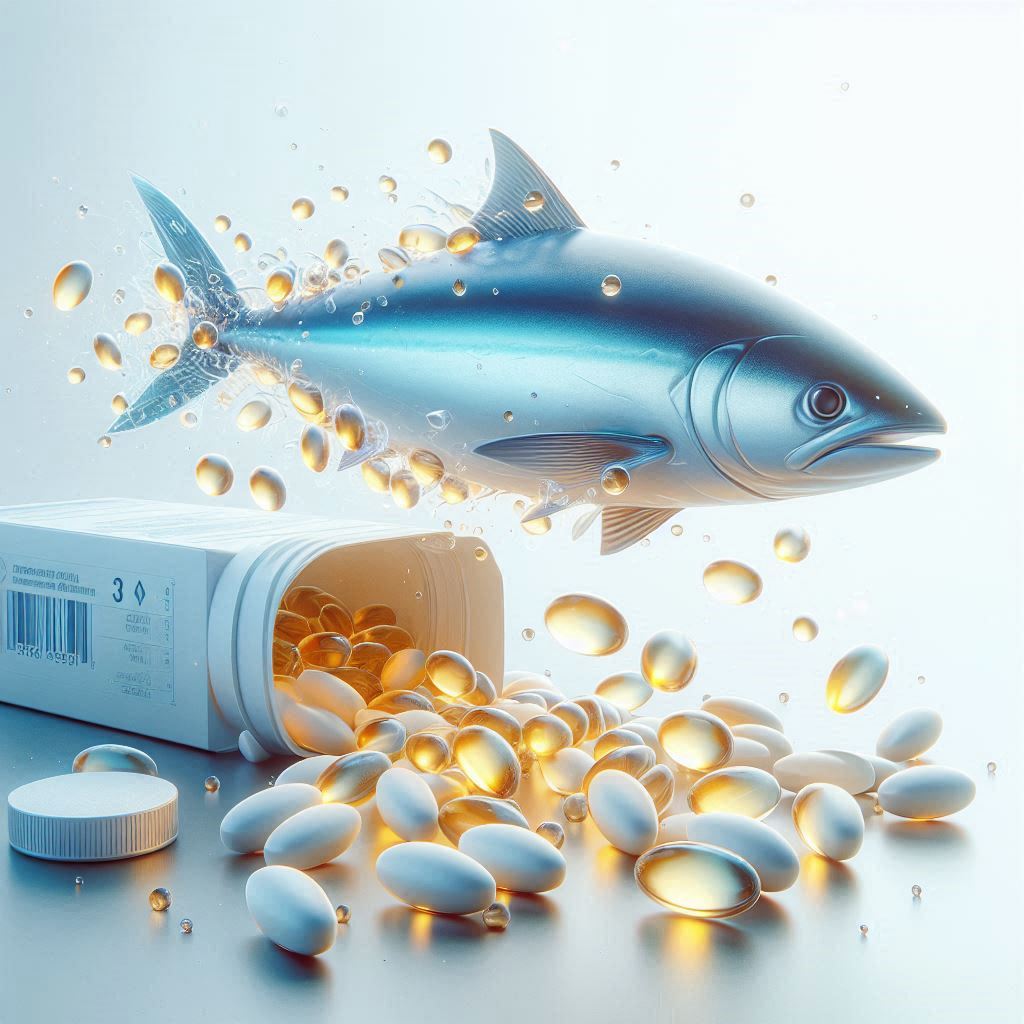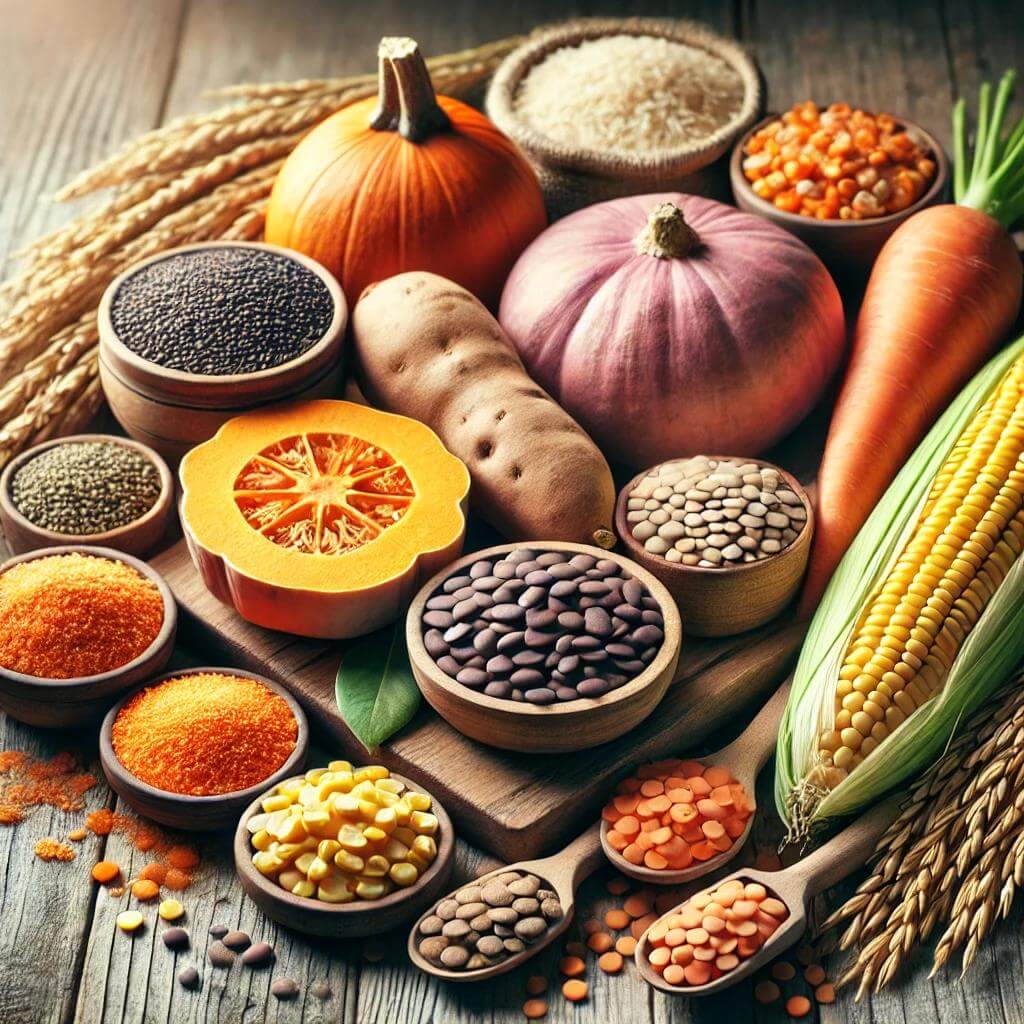Top 20 Vegan Protein Sources You Can’t Miss
Introduction
In a world increasingly shifting towards plant-based diets, understanding how to meet your protein needs through vegan sources is crucial. Protein is an essential macronutrient, vital for muscle repair, enzyme function, and overall health. While many associate protein with animal products, there are plenty of vegan sources that can meet and even exceed your dietary needs. This article will delve into the best vegan protein sources, ranked from the most protein-dense to the least, providing you with a thorough guide to maintaining a balanced and nutritious vegan diet.
The Best Vegan Protein Sources (Sorted by Protein Content per 100g)
1. Spirulina
Spirulina is a type of blue-green algae that contains an impressive 57 grams of protein per 100 grams.
- Nutritional Values: Spirulina is also packed with vitamins, minerals, and antioxidants, making it a superfood.
- Incorporation Tips: Add spirulina powder to smoothies, juices, or sprinkle it over salads for a nutritional boost.
2. Peanuts
Peanuts offer approximately 26 grams of protein per 100 grams.
- Nutritional Values: Peanuts are also a good source of healthy fats, fiber, magnesium, and vitamin E.
- Incorporation Tips: Consume peanuts as a snack, make peanut butter, or add them to stir-fries and salads.
3. Seitan
Seitan is a highly protein-rich food made from gluten, the main protein in wheat. It contains around 25 grams of protein per 100 grams.
- Nutritional Values: Besides being high in protein, seitan is low in fat and contains a good amount of iron. However, it is not suitable for those with gluten sensitivity or celiac disease.
- Incorporation Tips: Seitan can be grilled, fried, or sautéed, and is a fantastic meat substitute in stir-fries, sandwiches, and stews.
4. Lupini Beans
Lupini beans provide about 36 grams of protein per 100 grams.
- Nutritional Values: Lupini beans are also high in fiber and low in carbohydrates, making them a great option for those on low-carb diets.
- Incorporation Tips: Enjoy lupini beans as a snack, add them to salads, or use them in stews.
5. Pumpkin Seeds
Pumpkin seeds are a highly nutritious snack that provides about 19 grams of protein per 100 grams.
- Nutritional Values: Besides being high in protein, pumpkin seeds are rich in magnesium, iron, zinc, and antioxidants.
- Incorporation Tips: Enjoy them as a snack, sprinkle them over salads, or add them to baked goods for extra crunch and protein.
6. Tempeh
Tempeh is a fermented soy product that offers around 19 grams of protein per 100 grams.
- Nutritional Values: In addition to protein, tempeh provides probiotics, calcium, and iron. It is also less processed than tofu, making it a whole-food option.
- Incorporation Tips: Tempeh can be sliced, marinated, and grilled, or added to stir-fries and salads for a protein boost.
7. Hemp Seeds
Hemp seeds pack a punch with about 31 grams of protein per 100 grams.
- Nutritional Values: These seeds are rich in omega-3 fatty acids, magnesium, iron, and calcium. They are also easily digestible.
- Incorporation Tips: Sprinkle hemp seeds over smoothies, salads, or oatmeal for an extra protein boost.
8. Edamame
Edamame, or young soybeans, provide around 11 grams of protein per 100 grams.
- Nutritional Values: In addition to protein, edamame is high in fiber, vitamins, and minerals, making it an excellent snack or salad addition.
- Incorporation Tips: Serve edamame as a snack, or add it to salads and stir-fries.
9. Lentils
Lentils are a powerhouse of nutrition, providing around 9 grams of protein per 100 grams.
- Nutritional Values: Lentils are also high in fiber, iron, and folate, making them a heart-healthy and digestive-friendly option.
- Incorporation Tips: Lentils are versatile and can be used in soups, stews, salads, or as a meat substitute in dishes like vegan shepherd’s pie.
10. Black Beans
Black beans provide about 9 grams of protein per 100 grams.
- Nutritional Values: In addition to protein, black beans are high in fiber, folate, and iron.
- Incorporation Tips: Use black beans in soups, stews, salads, or as a base for veggie burgers.
11. Tofu
Tofu, made from soybeans, contains about 8 grams of protein per 100 grams.
- Nutritional Values: Tofu is a good source of calcium, iron, and isoflavones, which have been linked to various health benefits.
- Incorporation Tips: Tofu can be stir-fried, baked, or blended into smoothies for a protein-rich meal.
12. Chickpeas
Chickpeas, or garbanzo beans, provide approximately 8 grams of protein per 100 grams.
- Nutritional Values: Chickpeas are not only rich in protein but also provide a good amount of fiber, iron, and phosphorus.
- Incorporation Tips: They can be roasted for a crunchy snack, mashed into hummus, or added to salads and curries.
13. Oats
Oats are a versatile grain that provides about 13 grams of protein per 100 grams.
- Nutritional Values: Oats are also rich in fiber, particularly beta-glucan, which is beneficial for heart health. They also contain iron, magnesium, and zinc.
- Incorporation Tips: Enjoy oats as oatmeal, use them in baking, or blend them into smoothies for added texture and protein.
14. Almonds
Almonds offer approximately 6 grams of protein per 100 grams.
- Nutritional Values: Almonds are also rich in healthy fats, fiber, vitamin E, and magnesium.
- Incorporation Tips: Enjoy almonds as a snack, or add almond butter to smoothies or spread it on toast.
15. Quinoa
Quinoa is often referred to as a complete protein because it contains all nine essential amino acids. It offers about 4 grams of protein per 100 grams.
- Nutritional Values: Quinoa is also high in magnesium, iron, fiber, and manganese, making it a highly nutritious grain.
- Incorporation Tips: Use quinoa as a base for salads, in place of rice, or as a breakfast porridge.
16. Chia Seeds
Chia seeds provide about 4 grams of protein per 100 grams.
- Nutritional Values: These tiny seeds are packed with fiber, omega-3 fatty acids, and various micronutrients.
- Incorporation Tips: Chia seeds can be used in puddings, smoothies, or sprinkled over cereal and yogurt.
17. Sunflower Seeds
Sunflower seeds offer around 21 grams of protein per 100 grams.
- Nutritional Values: These seeds are rich in healthy fats, fiber, magnesium, and vitamin E.
- Incorporation Tips: Sprinkle sunflower seeds on salads, mix them into granola, or eat them as a snack.
18. Nutritional Yeast
Nutritional yeast is a popular vegan condiment that provides about 50 grams of protein per 100 grams.
- Nutritional Values: Nutritional yeast is also fortified with B-vitamins, including B12, making it a valuable addition to a vegan diet.
- Incorporation Tips: Sprinkle it over popcorn, pasta, or use it in sauces for a cheesy flavor.
19. Peas
Peas contain approximately 5 grams of protein per 100 grams.
- Nutritional Values: Peas are also high in fiber, vitamins A, C, and K, and are a good source of folate.
- Incorporation Tips: Add peas to soups, stews, salads, or enjoy them as a side dish.
20. Broccoli
Broccoli provides about 3 grams of protein per 100 grams.
- Nutritional Values: In addition to protein, broccoli is rich in fiber, vitamin C, vitamin K, and various antioxidants.
- Incorporation Tips: Steam, stir-fry, or roast broccoli, or add it to salads and casseroles.
Summary Table (Sorted by Protein per 100g)
| Food | Protein (g per 100g) | Protein (g per serving) | Serving Size | Other Nutrients |
|---|---|---|---|---|
| Spirulina | 57 | 4 | 7g | Vitamins, Minerals, Antioxidants |
| Nutritional Yeast | 50 | 8 | 16g | B-Vitamins, including B12 |
| Hemp Seeds | 31 | 10 | 30g | Omega-3, Magnesium, Calcium |
| Lupini Beans | 36 | 9 | 25g | Fiber, Low carb |
| Peanuts | 26 | 7 | 28g | Healthy fats, Fiber, Magnesium |
| Seitan | 25 | 25 | 100g | Iron, Low fat |
| Pumpkin Seeds | 19 | 9 | 47g | Magnesium, Iron, Zinc, Antioxidants |
| Tempeh | 19 | 19 | 100g | Probiotics, Calcium, Iron |
| Sunflower Seeds | 21 | 6 | 28g | Healthy fats, Fiber, Vitamin E |
| Edamame | 11 | 17 | 155g | Fiber, Vitamins, Minerals |
| Oats | 13 | 6 | 46g | Fiber, Iron, Magnesium |
| Lentils | 9 | 18 | 198g | Fiber, Iron, Folate |
| Black Beans | 9 | 15 | 172g | Fiber, Folate, Iron |
| Tofu | 8 | 8 | 100g | Calcium, Iron, Isoflavones |
| Chickpeas | 8 | 15 | 164g | Fiber, Iron, Phosphorus |
| Almonds | 6 | 6 | 28g | Healthy fats, Fiber, Vitamin E |
| Peas | 5 | 8 | 160g | Fiber, Vitamins A, C, and K, Folate |
| Quinoa | 4 | 8 | 185g | Magnesium, Fiber, Manganese |
| Chia Seeds | 4 | 4 | 28g | Fiber, Omega-3, Micronutrients |
| Broccoli | 3 | 3 | 100g | Fiber, Vitamin C, Vitamin K, Antioxidants |
Conclusion
Meeting your protein needs on a vegan diet is not only possible but can also be incredibly diverse and nutritious. From the protein-packed seitan to nutrient-dense chia seeds, incorporating a variety of these foods into your meals will ensure you receive all the essential amino acids and other nutrients your body needs to thrive. Whether you’re looking to build muscle, maintain your weight, or simply eat a healthier diet, these vegan protein sources are excellent options to consider.
*Disclaimer: The information provided in this article is for educational and informational purposes only and should not be construed as health advice. The content is solely the personal opinion of the author and is not intended to be a substitute for professional medical advice, diagnosis, or treatment. Always seek the advice of your physician or other qualified health provider with any questions you may have regarding a medical condition or before starting any new diet or treatment. Read more




Post Comment